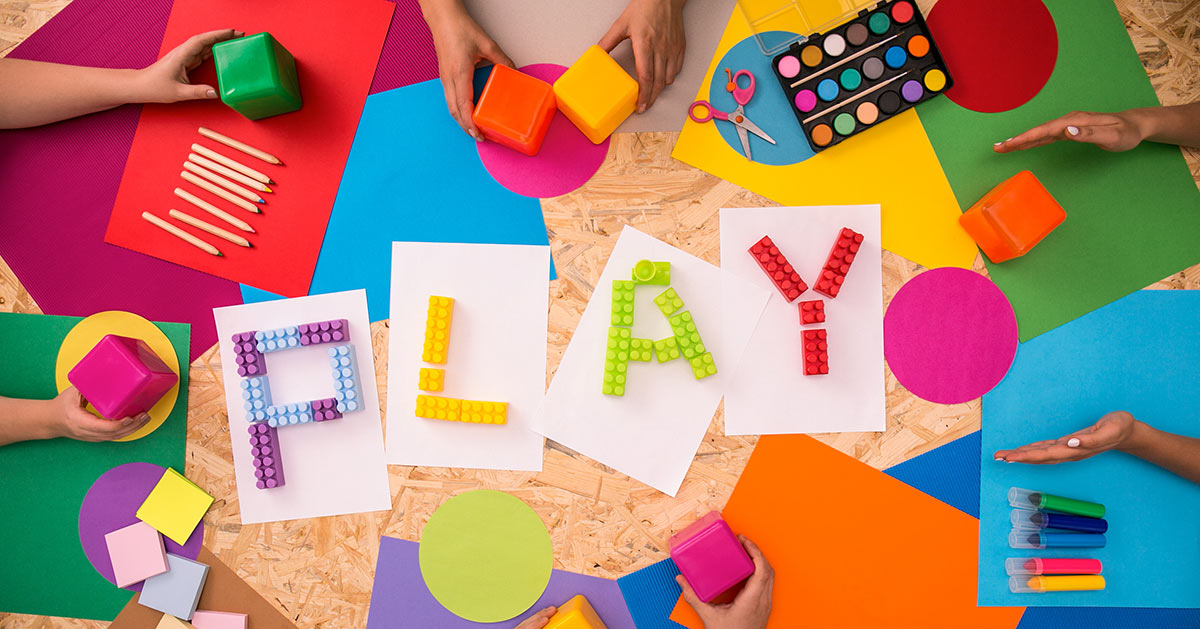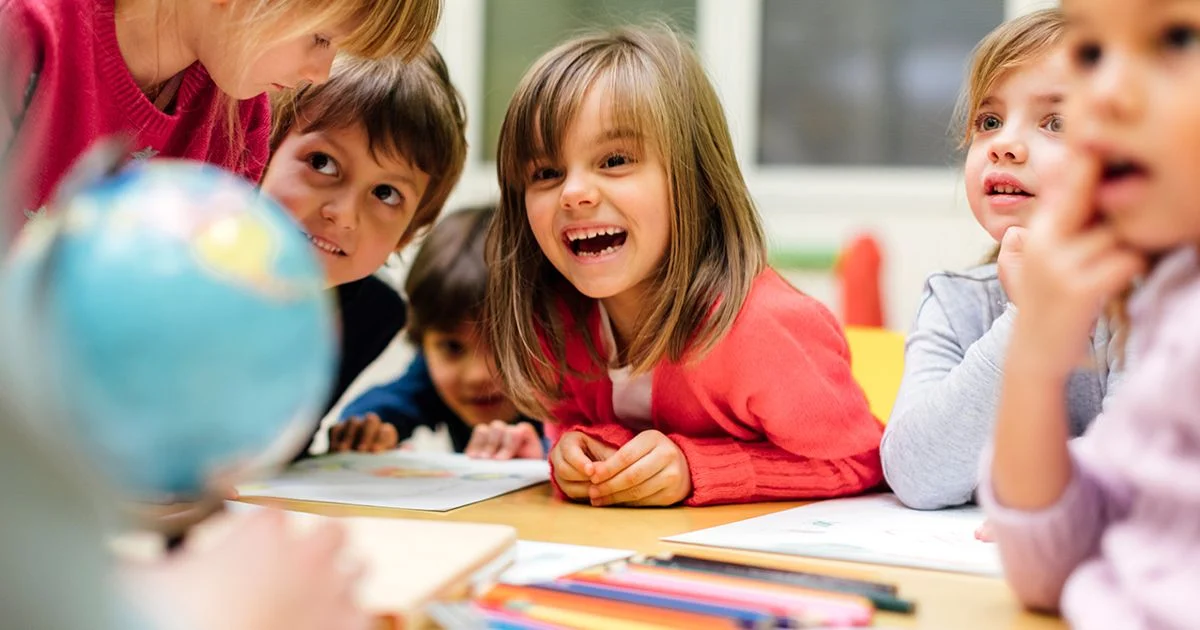At Crystals Childcare and Preschool, we believe that play is fundamental to how children naturally learn and develop. As an early education provider catering to children from 18 months to 12 years old, we have designed our programs and curriculum around facilitated play and hands-on learning.
Research shows that especially for young children, play-based learning fosters cognitive, physical, social, and emotional growth in ways that traditional academically-driven instruction cannot. As such, our center provides plenty of opportunities each day for children to play, create, explore, and discover – with learning incorporated seamlessly into these activities.
In this blog post, we will explore:
– The research behind play-based learning
– How play facilitates development and skills
– Our play-based curriculum and programs
– The role of teachers in play-based learning
– Benefits for children and parents


The Research Behind Play-Based Learning
Decades of research in early childhood development and education have demonstrated that play is essential to how kids learn best. Playing allows children to use their creativity while developing motor skills, cognitive functions, decision-making, problem-solving, and more.
In fact, research shows that play stimulates brain development in babies and toddlers when neural connections form. As children engage their bodies and senses through play, neural networks grow, laying the foundation for more complex skills.
Experts argue that in early education, play is not opposed to learning – it is learning. Children experiment, discover, and absorb concepts naturally when playing. Replacing play with more structured academic learning at too early an age can negatively impact development.
Our center keeps up-to-date with the latest research to provide developmentally appropriate play-based programs catered to different childhood stages. We understand the profound benefits high-quality, guided play confers upon growing, curious young minds.
How Play Facilitates Development and Skills
It may look like fun and games, but play involves serious work on the child’s part to understand their world and develop new capabilities. As children play, they hone a remarkable range of cognitive, physical, social, and emotional proficiencies.
Here are some examples of how different types of play promote holistic learning and competence:
Physical play
– Climbing on playground structures promotes gross motor skills, balance, strength – Manipulating modeling clay or blocks refines fine motor skills
– Dancing to music helps coordination
Imaginative play
– Pretend play builds narrative skills, creativity, role-playing
– Storytelling expands vocabulary, language faculties
– Costumes allow self-expression, independence



Construction play
– Building with blocks develops spatial reasoning, design thinking
– Tinkering with gadget toys aids in understanding cause-and-effect
– Coloring, and painting foster creativity, decision-making
Social play
– Sharing toys teaches empathy, cooperation, problems solving
– Play-acting together allows learning social cues, rules
– Group games impart turn-taking abilities, communication
As you can see, play enables full engagement across developmental domains, allowing children to organically build up strengths while having fun. Our specially tailored play environments and activities utilize this natural drive to learn.
Our Play-Based Curriculum and Programs
At our preschool and child care center, our play-based curriculum is thoughtfully planned to promote learning across key areas: math and logic, language and reading readiness, science, arts and crafts, music and movement, dramatic play, construction activities, and more.
We design schedules, spaces, materials, and guidance opportunities to target different learning objectives through play each day. While play is predominately child-directed to encourage agency and exploration, teachers facilitate stretch thinking.
Here are some examples of play-based learning in our different programs:
Infants & Toddlers (18 months – 3 years)
– Texture play with varying sensory materials
– Music, movement, and dance to build gross motor abilities
– Pretend play corners with dress-ups, props
– Natural materials for building and construction
Preschool Children (3 years – 5 years)
– Storytelling games to expand narrative capacities
– Pattern-making activities to develop early math
– Nature discovery zones to introduce science concepts
– Arts & crafts projects to promote creativity
School-Age Children (5 years – 12 years)
– Strategy games to sharpen critical thinking skills
– Dramatic performances to embolden self-expression
– DIY engineering design projects
– Cooking activities incorporating chemistry, fractions
Our play programs balance both free play for imaginary exploration and guided play to nudge learning along. With attentive teacher interactions – asking questions about what they are doing, wondering aloud about possible solutions, and introducing new ideas and scenarios – play becomes an opportunity to scaffold learning.
We aim for children to develop not just academically, but to nurture curious, socially adept, resilient, and resourceful learners through play.


The Role of Teachers in Play-Based Learning
For play to fully support development, our early childhood teachers do not take a hands-off approach – they play an integral role in facilitating through attentive observation, domain knowledge, and intentional scaffolding.
Skilled teachers closely supervise play dynamics, stepping in when needed to expand learning or resolve social problems. They cultivate safe yet challenging environments, ensuring appropriate space, tools, and materials suited for each age group. Our childcare staff and preschool teachers ask thoughtful questions and make comments to spur creative problem-solving without directly solving issues.
Teachers allow child-led play to unfold while modeling constructive behaviors and expanding thinking or skills. Their guidance helps realize play’s learning potential while letting kids maintain autonomy and initiative.
For example, when children pretend to operate a restaurant in the dramatic play area, teachers can:
– Suggest adding menus, and aprons which extend the scenario
– Ask questions about “customers'” food orders which builds narrative
– Show how to set tables cooperatively which aids social dynamics
By supporting play in thoughtful ways tailored to learning goals, our teachers leverage play’s developmental power while ensuring kids feel empowered directing it.
Benefits for Children and Parents
We believe that a high-quality, play-based early education provides profound short and long-term benefits enriching children’s growth trajectory by:
Building learning capabilities: Play strengthens a host of cognitive and social-emotional skills to equip children for success in later grades. Kids develop focused attention, memory retention, mental flexibility, and self-regulation alongside subject knowledge.
Supporting overall development: Play addresses developmental domains holistically, ensuring kids gain physical, fine motor, communication, creative, and interpersonal competencies.
Cultivating positive traits: Play fosters independence, self-motivation, resilience, resourcefulness, and other traits that enable lifelong learning and nurture well-adjusted, fulfilled individuals.
Instilling a love of learning: By associating learning with delight and accomplishment, play-based pedagogies make education joyful, promoting academic engagement for years to come.
Preparing for the real world: Play-based learning allows safe yet challenging opportunities to collaboratively solve meaningful problems through creativity – great preparation for future workplace needs.
Providing enrichment: For working parents, our play environments guide children through stimulating academic, physical, creative, and values-based enrichment activities.
.
As you can see, research clearly shows play equips kids with cognitive abilities, executive functions, and productive mindsets benefiting short and long-term success more broadly than regimented drills alone could. Play unlocks curiosity, agency, and problem-solving – essential traits for both achievement and well-being
That’s why play sits at the heart of our early learning programs. To learn more about the advantages of play-based learning or to arrange a tour of our outstanding facility, contact us today at (432) 687-5904 info@crystalschildcare.org. Our center would love to show you firsthand how our playful, nurturing environments can enrich your child’s growth.

